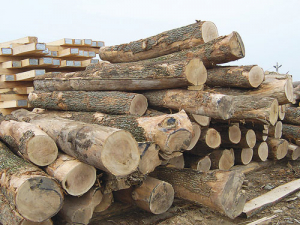Dairy power
OPINION: The good times felt across the dairy sector weren't lost at last week's Beef + Lamb NZ annual meeting.
 A new campaign between Beef+Lamb NZ and 50 Shades of Green aims to raise issues around forestry has raised the ire of farm foresters.
A new campaign between Beef+Lamb NZ and 50 Shades of Green aims to raise issues around forestry has raised the ire of farm foresters.
The Forest Owners Association is decrying the latest Kiwis Backing Farmers campaign as "climate change responsibility denial".
Announced in March, a collaborative campaign between Beef+Lamb NZ and group 50 Shades of Green aims to raise awareness about what it claims is an "overwhelming wave" of government policies and proposals undermining rural communities.
Part of its targets include pauses on any new regulations, limits in the Emissions Trading Scheme for the amount of offsetting fossil fuel emitters can do and reviewing methane targets.
However, Forest Owners Association president Grant Dodson calls the campaign contrary to the Climate Change Commission's advice that additional forests are needed to reach greenhouse gas emission reduction targets.
"Yet again it demonstrates farmers want to keep treating climate change as a problem that others need to solve," he claims. "They want to be allowed to carry on as if nothing is happening."
Dodson is calling that attitude "dangerous" for sheep and beef farmers long term.
"We acknowledge that food production is vital, but these recent cyclones clearly demonstrate that food production itself is at risk if nothing is done."
However, 50 Shades of Green media administrator Gwyn Jones called Dodson's statements "a low blow".
"Those bridges didn't blow out because of water, they blew out because of slash," she told Rural News.
"Forestry is the only industry I know of that can take the premium of the crop and leave the rest for somebody else to clean up."
Jones added that New Zealand farmers are converting to forestry more land per year than what the Climate Commission outlines.
"There is no way we are attempting to abdicate our responsibilities," she says. "What we are trying to do is work within something that will maintain a sustainable and profitable system. Unless people don't want to eat anymore, we need policies and regulations that are workable."
Dodson calls trees on hill country essential to stabiise the land, sequester carbon and provide diversified income to replace collapsed wool returns. He says that while the Forest Owners Association acknowledges that taking productive land out of circulation into carbon-only farming is not desirable, incorporating productive forestry onto farms was a "win-win".
"Farmers can fight climate change, meet He Waka Eke Noa targets, stabilise land and receive income from carbon and harvesting. I am incredulous that farming groups are directly campaigning against trees when they are a solution," he told Rural News.
"The Climate Change Commission advises this. Leading farmers know this. So why do we see a denial campaign from lobby groups that simply can't recognise established science and seem unwilling to play their part?"
Despite the less than cordial relations, Jones says that 50 Shades of Green are not inherently against forestry.
"We're not against forestry, we know forestry has its place. We've always promoted on farm integrated planting. If we did that we wouldn't need to have the current policies pushing through and incentivising the carbon price."
Dodson also claims that he sympathises with many of the regulatory concerns which the campaign raises. He says farming and forestry have a lot of common ground - literally and figuratively.
Coming in at a year-end total at 3088 units, a rise of around 10% over the 2806 total for 2024, the signs are that the New Zealand farm machinery industry is turning the corner after a difficult couple of years.
New Zealand's animal health industry has a new tool addressing a long-standing sustainability issue.
The Government has announced that ACC will be a sponsor of this year's FMG Young Farmer of the Year competition.
As veterinary student numbers grow to help address New Zealand's national workforce shortge, Massey University's School of Veterinary Science is inviting more veterinary practices to partner in training the next generation of vets.
South Island dairy farmers will soon be able to supply organic milk to Fonterra.
Norwood has announced the opening of a new Tasman dealership at Richmond near Nelson next month.